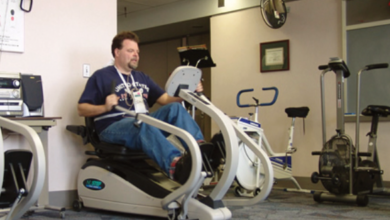what is a thoracic surgeon: What You Need to Know

Are you curious about what is a thoracic surgeon and what a thoracic surgeon actually does? It’s not just any ordinary medical profession. A thoracic surgeon is a highly skilled and specialized doctor responsible for treating conditions related to the chest, including heart disease, lung cancer, and other respiratory issues. If you’re interested in pursuing this career path or simply want to learn more about it, keep reading! In this blog post, we’ll delve into the world of thoracic surgery and provide you with all the information you need to know.
What is a Thoracic Surgeon?
A thoracic surgeon is a medical specialist who focuses on treating conditions related to the chest area. This includes the heart, lungs, and esophagus – all of which are essential for breathing and overall health. Thoracic surgeons may perform a wide range of surgical procedures to diagnose, treat or manage various illnesses.
These surgeries can include anything from minimally invasive procedures such as biopsies to more complex operations like open-heart surgery. A thoracic surgeon works closely with other healthcare professionals such as anesthesiologists, nurses, and respiratory therapists to ensure optimal patient care before, during and after surgery.
Thoracic surgeons must have excellent skills in critical thinking, problem-solving ability along with exceptional communication skills since they frequently work in high-pressure situations where quick decisions must be made while ensuring patient safety. In addition to their technical abilities within the operating room, they must also possess strong interpersonal skills when discussing complex medical information with patients and their families.
Being a thoracic surgeon requires significant dedication towards education and training coupled with passion for providing quality healthcare services that contribute positively towards patients’ overall well-being.
What Does a Thoracic Surgeon Do?
A thoracic surgeon specializes in the treatment of diseases and conditions affecting the organs inside the chest cavity, including the lungs, esophagus, heart, and thymus gland.
One of their primary responsibilities is performing surgeries to correct or remove cancerous or non-cancerous tumors from these organs. They may also perform procedures to treat lung infections like pneumonia or tuberculosis.
In addition to surgery, a thoracic surgeon also plays an important role in diagnosing and managing various conditions affecting these organs. This involves conducting tests such as CT scans and MRIs to determine the extent of disease progression and developing a personalized treatment plan based on each patient’s unique needs.
Thoracic surgeons work collaboratively with other healthcare professionals such as pulmonologists and oncologists to provide comprehensive care for their patients. They attend rounds where they discuss cases together with other specialists involved in treating a particular condition.
Being a thoracic surgeon requires extensive knowledge about anatomy within the chest cavity coupled with excellent surgical skills that enable them to operate on vital organs safely while striving towards minimal invasiveness whenever possible.
Pros and Cons of Being a Thoracic Surgeon
Being a thoracic surgeon can be a rewarding and challenging career path. Like any profession, there are pros and cons to consider before pursuing this specialty.
Pros:
One of the biggest advantages of being a thoracic surgeon is the opportunity to change people’s lives for the better. As a specialist in chest surgeries, you will have the ability to treat patients with serious conditions such as lung cancer or pulmonary disease. This means that your work has real meaning and can help save lives.
Another advantage is that thoracic surgeons are highly skilled professionals who command respect within their field. You will receive specialized training that few others possess, making you an expert in your area of expertise.
Cons:
On the flip side, being a thoracic surgeon can also be incredibly stressful and demanding. Surgeons often work long hours under high-pressure situations where even small mistakes could have severe consequences.
Moreover, becoming a thoracic surgeon requires years of education and training which can be expensive both time-wise and financially speaking. Additionally, malpractice insurance rates for surgeons continue rising year after year due to increasing litigation against medical practitioners.
In summary,
Being aware of these pros and cons is important when considering if becoming a thoracic surgeon aligns with one’s personal goals and lifestyle preferences. Ultimately it takes hard-work , dedication ,and passion towards medicine to make it worthwhile!
What Education and Training is Required to Become a Thoracic Surgeon?
Becoming a thoracic surgeon requires rigorous education and training. To start, one must complete a bachelor’s degree in pre-med or a related field. After this, they must attend medical school for four years to obtain an MD degree.
After completing medical school, aspiring thoracic surgeons need to complete a residency program in general surgery that typically lasts five years. During the first two years of the residency program, residents gain knowledge on various surgical procedures and techniques through classroom instruction and hands-on experience under the supervision of experienced surgeons.
The next three years of the residency focus solely on thoracic surgery where residents perform surgeries such as lung resections, esophagectomies, mediastinal tumor removals alongside more complex heart surgeries like coronary artery bypass grafting (CABG) and atrial septal defect (ASD) repair.
Upon completion of their residency program, aspiring thoracic surgeons can choose to undertake additional fellowship training in specific areas such as cardiac or pulmonary/transplantation surgery.
Becoming a successful Thoracic Surgeon requires dedication towards achieving higher education goals along with gaining relevant work experience throughout their career journey.
What Are the Job Prospects for Thoracic Surgeons?
Thoracic surgery is a specialized field that requires extensive training and education. However, for those who are willing to put in the hard work, the job prospects for thoracic surgeons can be quite promising. With an aging population and an increasing number of people suffering from lung cancer and other respiratory conditions, there is a growing demand for skilled thoracic surgeons.
One of the biggest advantages of pursuing a career in thoracic surgery is the opportunity to make a real difference in patients’ lives. As a thoracic surgeon, you will have the chance to save lives and improve quality of life by treating conditions such as lung cancer, emphysema, and heart disease.
Another advantage of becoming a thoracic surgeon is financial stability. Thoracic surgeons are among some of the highest-paid medical professionals due to their specialized skills and expertise.
While there may be challenges associated with being a thoracic surgeon – including long hours and high pressure situations – many find this career path incredibly rewarding. If you’re passionate about helping others and have an interest in surgical procedures related to chest organs like lungs or heart then becoming a Thoracic Surgeon could be your calling!
Conclusion
Becoming a thoracic surgeon requires years of education and training, but the benefits are numerous. Thoracic surgeons have an opportunity to make a significant impact on patients’ lives by treating diseases that affect the lungs, heart, and other organs in the chest cavity.
Despite being one of the most challenging medical disciplines, it remains a highly sought-after profession due to its high earning potential and prestige. However, not everyone can handle the pressure associated with this job.
If you’re considering becoming a thoracic surgeon or need treatment for conditions related to your chest cavity organs, you should always consult with professionals. They will guide you through making informed decisions about your career path or health choices.




